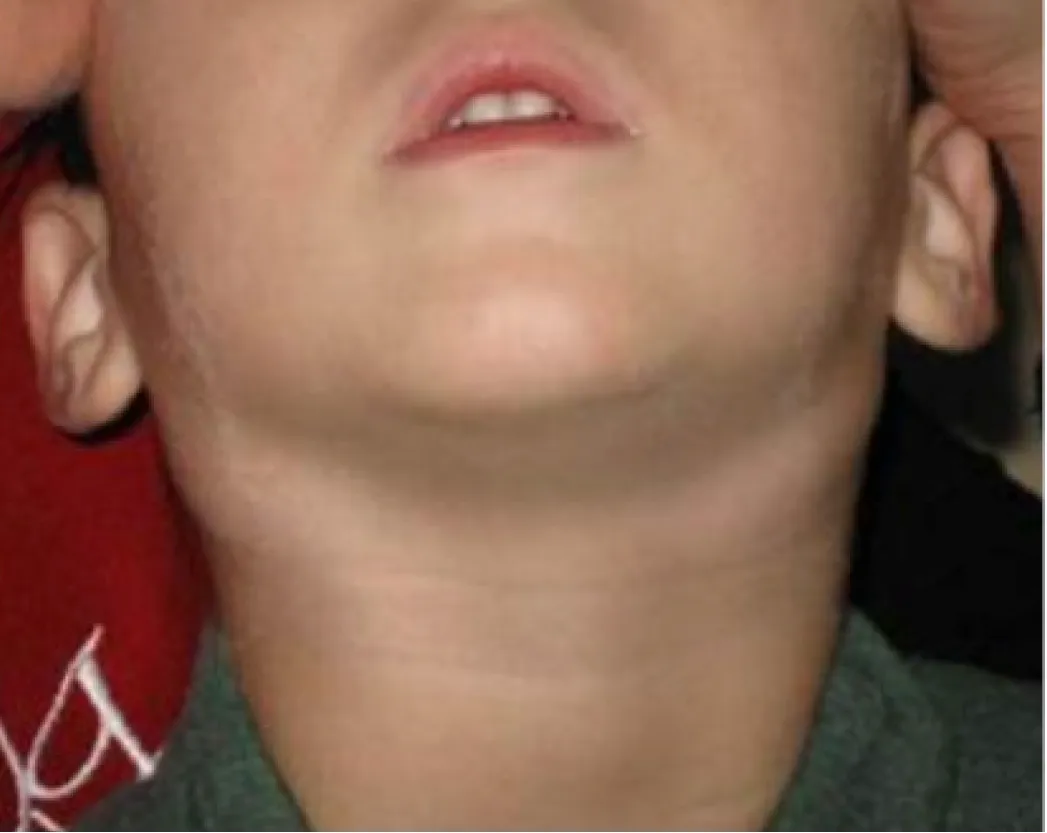Lymphadenopathy
If your child has any of the following:
- Is unable to swallow their own saliva
- Breathing very fast, too breathless to talk, eat or drink
- Working hard to breathe, drawing in of the muscles below the ribs, or noisy breathing (grunting)
- Breathing that stops or pauses
- Is pale, blue, mottled or feels unusually cold to touch
- Difficult to wake up, very sleepy or confused
- Weak, high-pitched cry or can’t be settled
- Has a fit (seizure)
- Has a rash that does not go away with pressure (the ‘Glass Test’)
- Is under 3 months old with temperature more than 38°C or under 36°C (unless fever in the 48 hours following vaccinations and no other red features)
You need urgent help.
Go to the nearest Hospital Emergency (A&E) Department or phone 999
If your child has any of the following:
- Develops pain and redness of the lymph node
- Lymph nodes increasing in size - bigger than a 10 pence coin
- Unexplained bruising
- Losing weight
- Breathing a bit faster than normal or working a bit harder to breathe
- Dry skin, lips or tongue
- Not had a wee or wet nappy in last 8 hours
- Poor feeding in babies (less than half of their usual amount)
- Irritable (Unable to settle them with toys, TV, food or hugs even after their fever has come down)
- Is 3 to 6 months old with temperature 39°C or above (unless fever in the 48 hours following vaccinations and no other red or amber features)
- Temperature of 38°C or above for more than 5 days or shivering with fever (rigors)
- Temperature less than 36°C in those over 3 months
- Getting worse and I am still worried
You need to contact a doctor or nurse today.
Please ring your GP surgery or contact NHS Wales111
If your child:
- Continues to have enlarged lymph nodes that are slowly improving but he/she is otherwise healthy
- Small lymph nodes may persist for years
Self care
Continue providing your child’s care at home. If you are still concerned about your child, ring your GP surgery or contact NHS Wales111
- Use painkillers such as ibuprofen and paracetamol to keep your child comfortable - please read and follow the instructions on the medicine container.
- It is normal for lymph nodes in your child's neck to be enlarged when they have an infection such as a sore throat. This is your child's normal response to fighting common infections. Antibiotics are not normally required.
- Children with severe eczema often have enlarged lymph nodes. This will improve with treatment of your child's eczema.
- Occasionally, enlarged lymph nodes can become infected. If the lymph node is painful, red and hot, your child will need to see a healthcare professional because they may need treatment with antibiotics.
- If your child has been prescribed antibiotics for an infection of their lymph nodes and still has a fever after 2 days, they will need to be seen again.
- Your child should start getting better within a couple of days but their lymph nodes may take 2-4 weeks to improve. Small lymph nodes may persist for years.
LEFT: Painless enlarged lymph nodes on both sides of the neck (bilateral) associated with a sore throat - likely to improve without treatment.
RIGHT: Painful, hot swelling on left side of neck caused by an infected lymph node - requires treatment with antibiotics






